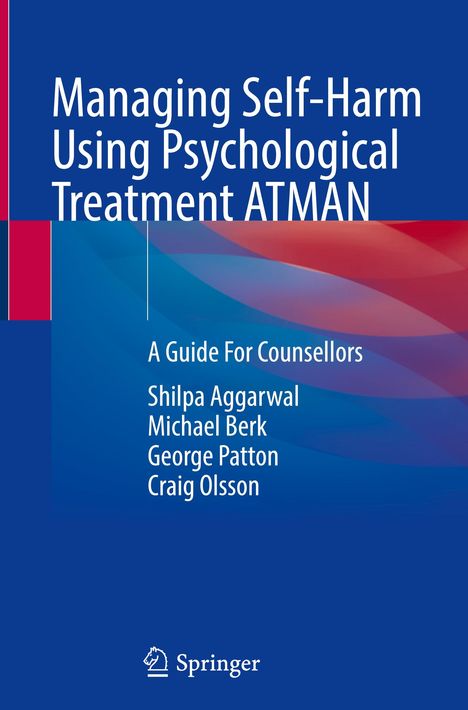Shilpa Aggarwal: Managing Self-Harm Using Psychological Treatment ATMAN, Gebunden
Managing Self-Harm Using Psychological Treatment ATMAN
- A Guide For Counsellors
(soweit verfügbar beim Lieferanten)
- Verlag:
- Springer International Publishing, 06/2024
- Einband:
- Gebunden, HC runder Rücken kaschiert
- Sprache:
- Englisch
- ISBN-13:
- 9783031564062
- Artikelnummer:
- 11900858
- Umfang:
- 188 Seiten
- Nummer der Auflage:
- 2024
- Ausgabe:
- 2024
- Gewicht:
- 488 g
- Maße:
- 241 x 160 mm
- Stärke:
- 16 mm
- Erscheinungstermin:
- 19.6.2024
- Hinweis
-
Achtung: Artikel ist nicht in deutscher Sprache!
Klappentext
The book presents the session wise details of ATMAN psychological treatment for managing self-harm in youth in low- and middle- income countries. Based on global evidence, ATMAN treatment has been designed using a systematic, sequential approach and has been co-designed by the self-harm patients and mental health professionals in Mumbai, India. The word ATMAN in Sanskrit refers to the ¿eternal self¿ that functions in harmony with the Universe.
Suicide is a leading cause of premature mortality across the world. Three quarters of global suicides occur in low- and middle-income countries. Most of the psychotherapies available to reduce the recurrence of self-harm have been developed and tested in high-income countries. Far less attention has been given to develop and evaluate context specific psychotherapeutic programmes for self-harm in low- and middle income countries.
The book includes contextually appropriate treatment elements; age appropriate and culturally relevant case vignettes and scripts; and is easy to understand for non-specialist providers. It is based on problem solving therapy integrated with emotion regulation and social network strengthening skills. Available treatments for self-harm are sub-optimal globally and this book might become an extremely useful resource for mental health professionals in high-income countries due to its easy to use format, brief structure, and utility for culturally diverse populations.
From the systems perspective, the possibility of scaling it up and training non-specialist counsellors to deliver this treatment in the community setting makes Managing Self-Harm Using Psychological Treatment ATMAN a very useful addition to the limited resources available to address the global health challenge of self-harm.


